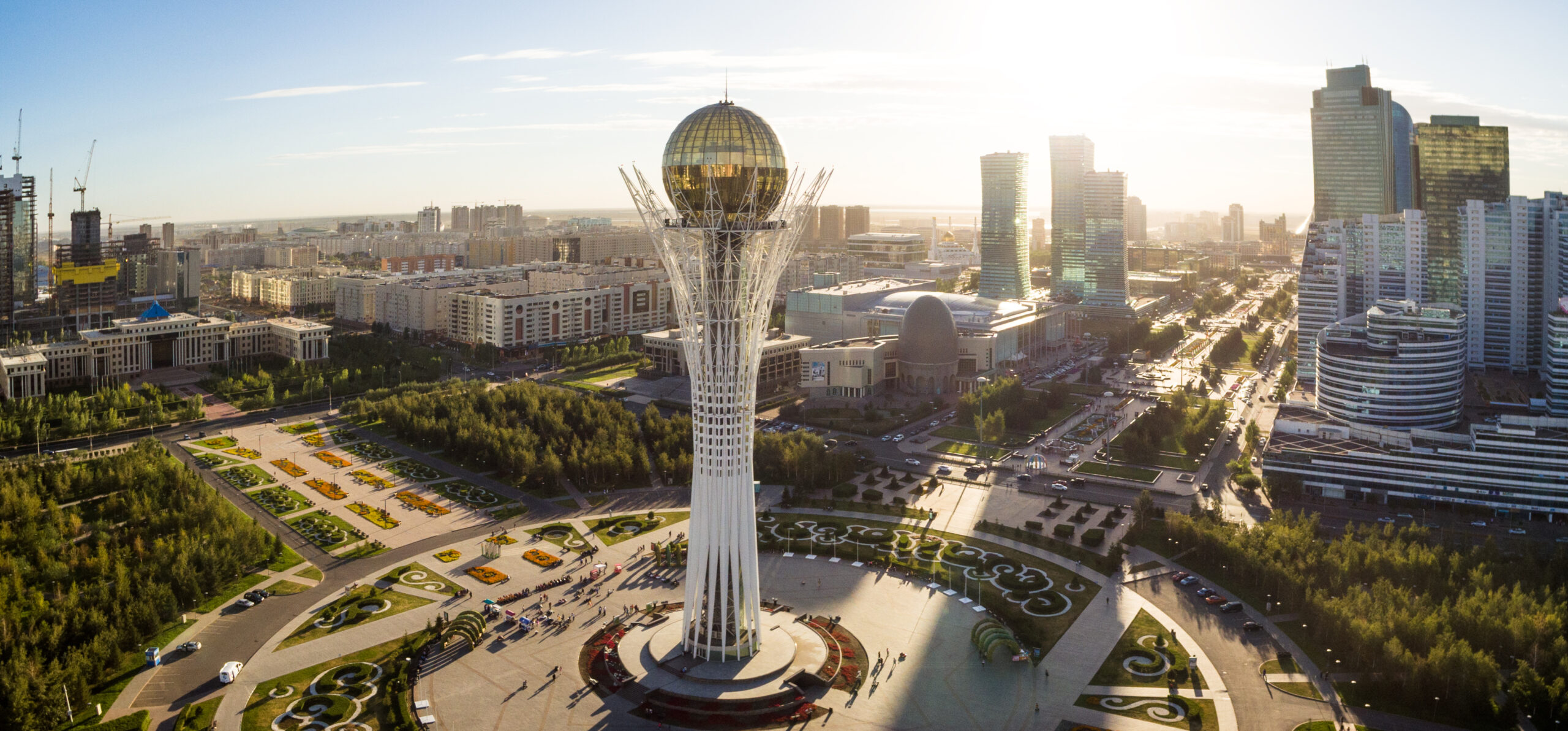ASTANA – The Astana Times has picked a selection of articles on Kazakhstan published in international media across the world. This week’s foreign media digest includes articles on Kazakhstan’s willingness to build stronger ties with South Korea, the country’s economic cooperation with the European Union and potential to supply energy and food to global markets, Germany’s investment in Kazakh energy resources, and Kazakh-Malaysian relations.

Photo credit: Shutterstock.
Kazakhstan sees South Korea as ideal partner in pragmatic diplomacy
As the country moves toward democracy following the implementation of reforms initiated by President Kassym-Jomart Tokayev, Kazakhstan is ready to strengthen relations with East Asia, particularly South Korea, as a key trade partner and investor, wrote The Korea Times on April 22, the oldest of three English-language newspapers published daily in South Korea.
Roman Vassilenko, Kazakh Deputy Minister of Foreign Affairs, said East Asia has been a very important region for the country for over three decades.
“I want to emphasize that Seoul was one of the first countries that recognized our country’s independence and established diplomatic relations,” Vassilenko told The Korea Times.
South Korea is a significant trade partner and one of the top-10 investors in Kazakhstan, having invested more than $8.1 billion over the last 17 years. More than 700 companies with South Korean capital are operating in Kazakhstan, including Samsung, Hyundai, POSCO and Lotte.
Central Asia: an emerging food and energy supplier for the world
Forbes, a global media company, published an article on April 25 on Kazakhstan’s economic cooperation with the European Union, transit infrastructure and investment in Kazakhstan and the rest of the region.
“The biggest issue is that the existing transit infrastructure and corridors connecting Central Asia to Europe pass through Russia. Alternative routes through Iran, Afghanistan, and China are all geopolitically unpalatable. The only remaining route is west, over the Caspian Sea and through the Caucasus into Türkiye and beyond. This Middle Corridor and the associated Trans-Caspian Pipeline finally have the political will for implementation,” it reads.
If Central Asia and especially Kazakhstan can augment its energy production, gas infrastructure, and uranium conversion and enrichment facilities through Western investment, while utilizing the Middle Corridor, the West would gain a tremendous advantage over other challengers, the article suggests. For their part, the investors that facilitate this would enjoy considerable profits that come with connecting developing regions to the European markets, as Western companies such as Boeing, General Motors, Chevron, and ENI have already discovered.
How can Kazakhstan and Central Asia help power and feed the world?
The Atlantic Council, a think tank based in Washington, D.C., released a report on April 28 analyzing the potential for Kazakhstan and the wider Central Asian region to supply energy and food to global markets amid global economic uncertainty.
“Russia’s weakened geopolitical position and the Western sanctions on its economy have opened up new opportunities for Central Asia to supply critical energy and food commodities to world markets. The Central Asian countries, including Kyrgyz Republic, Tajikistan, Turkmenistan, and Uzbekistan, can all play a role in powering and feeding the world as energy and food markets. Kazakhstan, as the region’s largest economy and its leading producer of oil and uranium is well-positioned to lead this transition,” the report says.
Kazakh energy for German cash: a new power partnership?
Investment in green energy gives Germany an opportunity to build a strong relationship with Kazakhstan looking for new allies, wrote the Center for European Policy Analysis (CEPA), a public policy institution based in Washington, D.C., on April 26.
“The wealth of Kazakh energy resources has attracted the attention of EU states worried they may struggle to keep the lights on. Germany, in particular, has been looking for new avenues to diversify energy supplies and is particularly attracted by the prospect of plentiful low-carbon energy that will help meet its green energy goals,” the article notes.
During a visit to Kazakhstan in October last year, German Foreign Minister Annalena Baerbock explored the potential for low-carbon green hydrogen production in the country. This power source (hydrogen produced using electricity from renewable sources) is tricky to transport but can potentially be added to natural gas (though this is controversial.) During her trip, Baerbock announced the establishment of a hydrogen diplomacy office in Astana, which aims to promote green energy development in the region.
Positive power of multiculturalism of Kazakhstan
The Straits Times, daily broadsheet newspaper based in Singapore, released an article on April 26 emphasizing common features of Kazakhstan and Malaysia in interethnic harmony and unification.
“Both countries demonstrate to the world a unique model of interethnic harmony and are a vivid example of smoothing out sharp corners between representatives of different ethnic groups, considering themselves as a single nation and promoting their motherlands to the world,” the article notes.
Rich historical backgrounds of Kazakhstan and Malaysia provide greater understanding of their strength through harmonious inter-ethnic relations, which have become a foundation for the successful socio-economic and political development of the states. Both countries have had significant success in the management, preservation and development of ethnic cultures.


